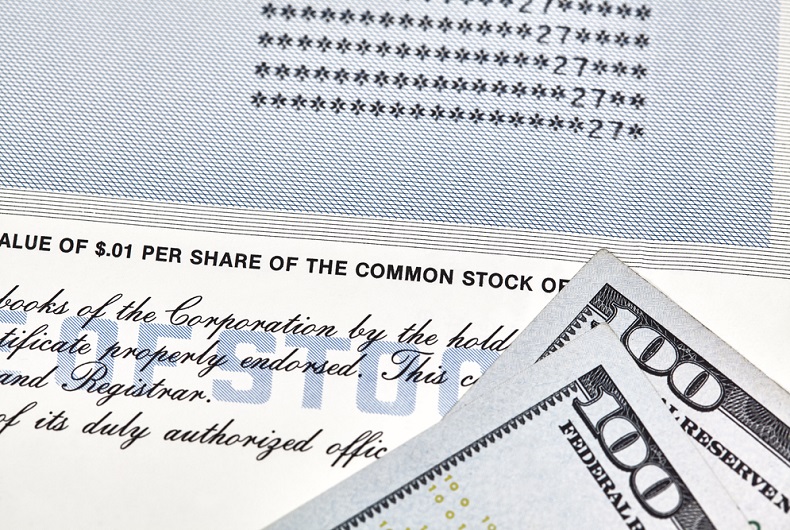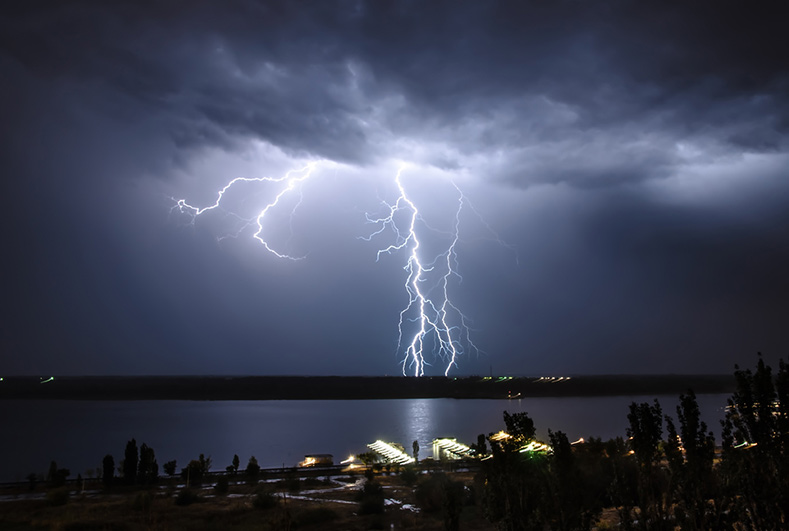Business Law
-
 Business owners need to be aware of all the options and implications thereof, at their disposal when resolving disputes – when they start their business. As its future survival could depend on the resolution of such disputes.
Business owners need to be aware of all the options and implications thereof, at their disposal when resolving disputes – when they start their business. As its future survival could depend on the resolution of such disputes. -
 A case from the Commercial Court in Gauteng is fascinating because it illustrates the far-reaching effects of conflicts of interest in companies and why they should be avoided.
A case from the Commercial Court in Gauteng is fascinating because it illustrates the far-reaching effects of conflicts of interest in companies and why they should be avoided. -
 Poor execution or contract management such as a belief by the parties that an electronic signature is binding, when in fact it does not meet the applicable legal provisions necessary for validity, may result in your businesses suffering an inability to remedy the consequences of a breach.
Poor execution or contract management such as a belief by the parties that an electronic signature is binding, when in fact it does not meet the applicable legal provisions necessary for validity, may result in your businesses suffering an inability to remedy the consequences of a breach. -
 In Sand Grove Opportunities Master Fund Ltd and Others v Distell Group Holdings Ltd and Others [2022] 2 All SA 855 (WCC), standing of an investment fund not registered as a shareholder to object to a scheme of arrangement.
In Sand Grove Opportunities Master Fund Ltd and Others v Distell Group Holdings Ltd and Others [2022] 2 All SA 855 (WCC), standing of an investment fund not registered as a shareholder to object to a scheme of arrangement. -
 In Gore NO and Another v Ward and Another [2022] 2 All SA 178 (WCC), liability for loss caused by fraudulent acts committed by company director, the authority of directors to control companies is vested and actual.
In Gore NO and Another v Ward and Another [2022] 2 All SA 178 (WCC), liability for loss caused by fraudulent acts committed by company director, the authority of directors to control companies is vested and actual. -
 In Shiva Uranium (Pty) Limited (In Business Rescue) and Another v Tayob and Others 2022 (2) BCLR 197 (CC), if a company enters business rescue voluntarily in terms of s 129, the power to appoint a substitute, if the practitioner resigns, remains with the company.
In Shiva Uranium (Pty) Limited (In Business Rescue) and Another v Tayob and Others 2022 (2) BCLR 197 (CC), if a company enters business rescue voluntarily in terms of s 129, the power to appoint a substitute, if the practitioner resigns, remains with the company. -
 In Department of Agriculture, Forestry and Fisheries and Another v B Xulu and Partners Incorporated and Others [2022] 1 All SA 434 (WCC) if there is in fact no distinction between the separate juristic personality of a juristic entity and those controlling it improperly, a piercing is justified.
In Department of Agriculture, Forestry and Fisheries and Another v B Xulu and Partners Incorporated and Others [2022] 1 All SA 434 (WCC) if there is in fact no distinction between the separate juristic personality of a juristic entity and those controlling it improperly, a piercing is justified. -
 In Santam Limited, a division of which is Hospitality and Leisure Insurance v Ma-Afrika Hotels (Pty) Ltd and Another [2022] 1 All SA 376 (SCA), business interruption indemnity period, objective approach of interpreting contracts and parties’ intentions applied.
In Santam Limited, a division of which is Hospitality and Leisure Insurance v Ma-Afrika Hotels (Pty) Ltd and Another [2022] 1 All SA 376 (SCA), business interruption indemnity period, objective approach of interpreting contracts and parties’ intentions applied. -
 In Massyn v De Villiers NO and Others [2021] 3 All SA 578 (WCC), establishing an inquiry by liquidators into the affairs of a company in terms of s 417 of the Companies Act, is if deemed fit, acceptable and necessary for winding-up the affairs of the company and distributing its assets.
In Massyn v De Villiers NO and Others [2021] 3 All SA 578 (WCC), establishing an inquiry by liquidators into the affairs of a company in terms of s 417 of the Companies Act, is if deemed fit, acceptable and necessary for winding-up the affairs of the company and distributing its assets. -
 In Van Zyl v Auto Commodities (Pty) Ltd [2021] 3 All SA 395 (SCA), Section 154(2) of the Companies Act only precludes creditors from pursuing claims against the company after the business rescue plan has been implemented. It does not affect or extinguish the liability of a surety for the debt.
In Van Zyl v Auto Commodities (Pty) Ltd [2021] 3 All SA 395 (SCA), Section 154(2) of the Companies Act only precludes creditors from pursuing claims against the company after the business rescue plan has been implemented. It does not affect or extinguish the liability of a surety for the debt. -
 Directors wanting to address problems in financially distressed companies need to be proactive, diligent, and aware of all options available to them, including the option of business rescue, its value, and the importance of its timing.
Directors wanting to address problems in financially distressed companies need to be proactive, diligent, and aware of all options available to them, including the option of business rescue, its value, and the importance of its timing. -
 To avoid wasting time and money on legal fees in seeking clarity from the courts, review your commercial lease contract, as we discuss the impact of looting.
To avoid wasting time and money on legal fees in seeking clarity from the courts, review your commercial lease contract, as we discuss the impact of looting. -
 A recent judgment in First National Nominees Pty Ltd and Others v Capital Appreciation Limited has, to a certain extent, provided much-needed clarity as to whether a company's acquisition of more than 5% of its issued shares is in fact a scheme, or merely subject to the procedural requirements thereof. Either way, are appraisal rights triggered when the company proposes such a buyback?
A recent judgment in First National Nominees Pty Ltd and Others v Capital Appreciation Limited has, to a certain extent, provided much-needed clarity as to whether a company's acquisition of more than 5% of its issued shares is in fact a scheme, or merely subject to the procedural requirements thereof. Either way, are appraisal rights triggered when the company proposes such a buyback? -
 Astral Operations Ltd t/a Early Bird Farm - the proper interpretation of the terms of the contract between the parties with specific reference to allegations that ‘usual prices’ for goods sold were not the usual prices, and if lower, whether the contract was breached.
Astral Operations Ltd t/a Early Bird Farm - the proper interpretation of the terms of the contract between the parties with specific reference to allegations that ‘usual prices’ for goods sold were not the usual prices, and if lower, whether the contract was breached. -
 A reflection on conflicts of interest and misappropriation of corporate opportunity under modern Company Law in South Africa.
A reflection on conflicts of interest and misappropriation of corporate opportunity under modern Company Law in South Africa. -
 A force majeure is generally defined as “an act of God or man that is unforeseen and unforeseeable and out of the reasonable control of one or both of the parties to a contract, and which makes it objectively impossible for one or both of the parties to perform their obligations under the contract.”
A force majeure is generally defined as “an act of God or man that is unforeseen and unforeseeable and out of the reasonable control of one or both of the parties to a contract, and which makes it objectively impossible for one or both of the parties to perform their obligations under the contract.” -
 A voluntary association of persons is an entity that is useful for those interested in conducting a business for a public-benefit purpose. Namely, because it is relatively straightforward and economical to use. This article informs readers about a voluntary association of persons by discussing its origins, the applicable law and why it is valuable for a group of persons aiming to achieve a common objective.
A voluntary association of persons is an entity that is useful for those interested in conducting a business for a public-benefit purpose. Namely, because it is relatively straightforward and economical to use. This article informs readers about a voluntary association of persons by discussing its origins, the applicable law and why it is valuable for a group of persons aiming to achieve a common objective. -
 A force majeure is generally defined as “an act of God or man that is unforeseen and unforeseeable and out of the reasonable control of one or both of the parties to a contract, and which makes it objectively impossible for one or both of the parties to perform their obligations under the contract.”
A force majeure is generally defined as “an act of God or man that is unforeseen and unforeseeable and out of the reasonable control of one or both of the parties to a contract, and which makes it objectively impossible for one or both of the parties to perform their obligations under the contract.” -
 Before totally closing down your business you might want to consider a business merger with a business that offers or renders the same goods and services as yours.
Before totally closing down your business you might want to consider a business merger with a business that offers or renders the same goods and services as yours. -
 The disruption caused by the global COVID-19 pandemic will have dire consequences for SMME’s, especially in the franchise sector. Franchisors need to consider measures to enable their franchisees to continue trading as “smoothly” as possible once the lockdown measures have been relaxed, while franchisees need to be compliant with their franchise agreements before expecting to receive assistance.
The disruption caused by the global COVID-19 pandemic will have dire consequences for SMME’s, especially in the franchise sector. Franchisors need to consider measures to enable their franchisees to continue trading as “smoothly” as possible once the lockdown measures have been relaxed, while franchisees need to be compliant with their franchise agreements before expecting to receive assistance.
 Lexis Nexis
Lexis Nexis